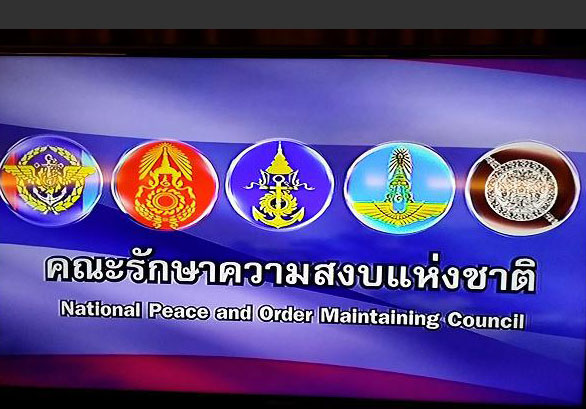
Jul 4, 2018 | News
Today the ICJ called on Thai prosecutorial authorities to immediately end the prosecution of five persons associated with academic activities in Chiang Mai. The five have been made subject to prosecution solely for exercising their rights to free expression and assembly.
Those subject to prosecution include Pakawadee Veerapatpong, an independent writer and translator; Chaipong Samnieng, a PhD candidate at Chiang Mai University; Nontawat Machai, an undergraduate student at Chiang Mai University; Teeramon Bua-ngam, a Masters student at Chiang Mai University and news editor; and Dr. Chayan Vaddhanaphuti, a Professor at Chiang Mai University.
The ICJ also called for the revocation or amendment of all laws, orders and announcements inconsistent with Thailand’s international human rights obligations.
Today, the Region V Public Prosecutor in Chiang Mai province formally notified the five individuals that they would be prosecuted for violating HNCPO Order No. 3/2558 (2015) (‘HNCPO Order 3’) for merely expressing their opinions at an academic forum at Chiang Mai University in July 2017.
HNCPO Order 3 prohibits the gathering of five or more persons for political purposes, carrying a penalty of imprisonment not exceeding six months and/or a fine not exceeding 10,000 Baht.
“The ongoing and abusive use of HNCPO Order 3 to stifle free expression in Thailand remains indefensible and an obstacle to the full restoration of the rule of law in Thailand,” said Kingsley Abbott, Senior Legal Adviser at the ICJ.
“The decision to indict these five individuals is clearly in breach of Thailand’s international human rights obligations and should be reversed immediately together with the termination of the proceedings and the revocation of HNCPO Order 3,” he added.
The Public Prosecutor’s decision to indict the five was made against a backdrop of recently increasing repression of fundamental freedoms in the country.
This year alone, at least 132 persons were reportedly charged under HNCPO Order 3 in 10 cases and six incidents in connection with a movement calling for elections to be held this year.
Twenty-seven of these individuals were also charged with a sedition-like offence, which carries a maximum penalty of seven years’ imprisonment.
Since the military coup of 22 May 2014, at least 378 persons have been reportedly charged in relation to 50 cases of violating the ban on political gatherings of five or more persons according to a report launched on 22 June 2018 by leading Thai NGO, Thai Lawyers for Human Rights (TLHR).
In March and June 2018, at the Human Rights Council, the ICJ called on Thailand to revoke or amend all laws, orders and announcements that are contrary to the rule of law and human rights protections.
“Four years have passed since the military coup resulting in numerous unjustifiable restrictions on fundamental freedoms – it is long past time for Thailand to undertake reform necessary to prevent the legal system from being misused to harass individuals who merely exercise their human rights,” said Abbott.
Contact
Kingsley Abbott, ICJ Senior International Legal Adviser, email: kingsley.abbott@icj.org
Background
The Region V Public Prosecutor’s decision in Chiang Mai province follows charges filed against the individuals by a military officer in 2017.
Pakawadee Veerapatpong, Chaipong Samnieng and Nontawat Machai had allegedly held up three A4-sized messages which read “an academic forum is not a military barracks” at the academic conference.
Teeramon Bua-ngam had reportedly taken a picture of himself standing next to the messages and posted the same on social media.
Dr. Chayan Vaddhanaphuti had reportedly watched the display of the messages without asking for them to be removed, despite being an organizer of the conference.
Thailand is a State party to the International Covenant on Civil and Political Rights (ICCPR). Articles 19, 21 and 22 of the ICCPR guarantee the rights to freedom of opinion and expression, freedom of peaceful assembly and freedom of association.
Since the military coup, the ICJ has expressed its concern about the use of a new legal framework and pre-existing laws to clamp down on the rights to freedom of expression, association and assembly, including criminal defamation (Articles 326-328 of the Thai Criminal Code), the Computer-Related Crime Act B.E.2550 (2007), a sedition-like offence (Article 116 of the Thai Criminal Code), and HNCPO Order 3.
Read also
ICJ and TLHR Joint Submission to the UN Human Rights Committee, 13 February 2017
ICJ and TLHR Joint Follow-up Submission to the Human Rights Committee, 27 March 2018
Thailand-Academics indicted-News-Web Story-2018-THA (story in Thai, PDF)
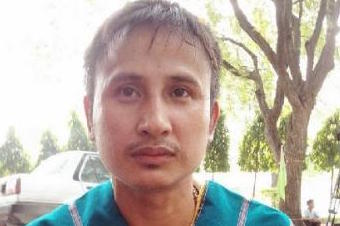
Jul 2, 2018 | News
Today, the ICJ, along with Amnesty International and Human Rights Watch, made a join statement about the special investigation of the apparent enforced disappearance of Karen activist, Pholachi “Billy” Rakchongcharoen.
The investigation of the apparent enforced disappearance of Karen activist, Pholachi “Billy” Rakchongcharoen, should genuinely seek to establish Billy’s fate and whereabouts, continually and fully inform his family on developments.
The investigation should also bring persons identified as responsible, irrespective of rank or status, to justice in a fair trial, the International Commission of Jurists (ICJ), Amnesty International and Human Rights Watch said today.
The organizations also called on authorities to expedite long overdue legal and administrative measures to provide better protection against enforced disappearance, in compliance with Thailand’s international human rights obligations.
On 28 June 2018, following a meeting of the Special Case Committee No. 1/2018, the Ministry of Justice’s Department of Special Investigations (“DSI”) made the welcome announcement that it had decided to recognize the apparent enforced disappearance of Pholachi “Billy” Rakchongcharoen an ethnic Karen activist, as a “Special Case” that must be “investigated in accordance with the Special Case Investigation Act, B.E. 2547 (2004)”, that is, by the DSI itself.
Pholachi “Billy” Rakchongcharoen was last seen on 17 April 2014 in the custody of Kaeng Krachan National Park officials in Thailand’s Phetchaburi province.
At the time of his apparent enforced disappearance, Billy had been working with ethnic Karen villagers and activists on legal complaints against the National Park officials for purportedly burning and destroying their houses, farms, and other properties.
The DSI’s announcement followed a long-standing request by Billy’s wife, Phinnapha Phrueksaphan, and years of advocacy by the ICJ, Amnesty International and Human Rights Watch calling on the DSI to assume jurisdiction over the case.
They are also calling the DSI to conduct a prompt, independent, impartial and effective investigation into his fate or whereabouts consistent with international law and standards, including the revised Minnesota Protocol on the Investigation of Potentially Unlawful Death (2016), which was launched in collaboration with the Thai Ministry of Justice on 25 May 2017.
The revised Minnesota Protocol states that if investigators are unable to locate a body or remains, they should continue to gather other direct and circumstantial evidence which may suffice for identifying the perpetrator(s).
Despite the existence of a wealth of information relevant to the circumstances surrounding Billy’s apparent enforced disappearance, the four-year-old police investigation has been marked by a significant lack of progress.
At the same time, Thailand has yet to honor its repeated commitments to ratify the International Convention for the Protection of All Persons from Enforced Disappearance (ICPPED), which it signed on 9 January 2012.
Thai authorities have failed to implement Thailand’s international legal obligations to provide justice for the victims of enforced disappearance and their families. Perpetrators are able to evade penalties, at least in part because Thai laws still do not make enforced disappearance a specific criminal offence.
The Convention affirms that “no one shall be subjected to enforced disappearance” and places an obligation on states to investigate acts of enforced disappearance, to bring those responsible to justice, and make it a criminal offence punishable by appropriate penalties that take into account its “extreme seriousness”.
On 10 March 2017, Thailand’s legislative body, the National Legislative Assembly (NLA), voted in favor of ratifying the ICPPED. However, on 6 September 2017, the ICJ was informed by Thailand’s Ministry of Foreign Affairs that a decision had been taken to delay the ratification of the ICPPED until legislation had been enacted to give domestic effect to the treaty.
Irrespective of ICPPED ratification, Thailand is also obliged to effectively investigate and prosecute the crime of enforced disappearance under the International Covenant on Civil and Political Rights (ICCPR) and the UN Convention against Torture (CAT).
Efforts to pass a law making torture, other acts of ill-treatment and enforced disappearance specific offences in Thai law have also stalled.
Thailand’s Ministry of Justice notes that a second round of public consultations on a Draft Prevention and Suppression of Torture and Enforced Disappearance Act (‘Draft Act’) has been concluded and that it is now in the process of evaluating the consultations.
The ICJ, Amnesty International and Human Rights Watch urge that this process be hastened.
The ICJ, Amnesty International and Human Rights Watch have reviewed several versions of the Draft Act and are seriously concerned that adoption of the Draft Act as it currently stands will fail to bring the law into compliance with Thailand’s international human rights obligations.
On 30 August 2017, 23 November 2017, and 12 March 2018, civil society organizations, including the ICJ, Amnesty International and Human Rights Watch, sent open letters to the Government, including to Thailand’s Minister of Justice, outlining amendments that would be necessary to bring the Draft Act in line with Thailand’s international human rights obligations.
Contact
Kingsley Abbott, Senior Legal Adviser, ICJ Asia Pacific Programme, t: +66 94 470 1345, e: kingley.abbott(a)icj.org
Full statement in English (PDF): Thailand-Special-investigation-Billy-News-Press-releases-June-2018-ENG
Full statement in Thai (PDF): Thailand-Special-investigation-Billy-News-Press-releases-June-2018-THA
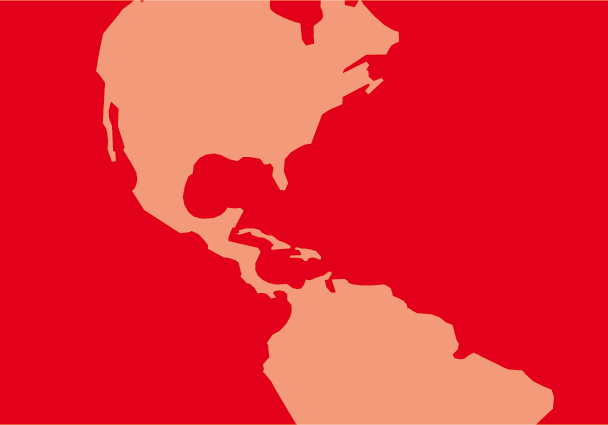
Jun 28, 2018 | News
On 24-25 June, ICJ Commissioners from the Latin America region came together in Bogotá, Colombia, to consider and enhance ICJ strategies to combat past and resurging trends in extrajudicial executions and enforced disappearances in the region.
The meeting was the first of its kind to bring together ICJ Commissioners on a regional basis: Carlos Ayala (Venezuela); Miguel Carbonell (Mexico); Gustavo Gallón (Colombia); Roberto Garretón (Chile); Juan Mendez (Argentina); Victor Rodriguez Rescia (Costa Rica); Alejandro Salinas Rivera (Chile); Mónica Pinto (Argentina); Belisário dos Santos Júnior (Brazil); and Wilder Tayler (Uruguay).
The meeting was followed by a preparatory mission (involving two Commissioners and the ICJ’s legal representative in Colombia) on the transitional justice mechanisms envisaged under the Havana Agreement, with a particular emphasis on the jurisdiction and operation of the ‘Special Jurisdiction for Peace’. A full high-level mission will follow in September, at which time the ICJ intends to identify minimum benchmarks for the effective operation and sustainable impact of those mechanisms.
In all regions of the world, recourse to enforced disappearances and extrajudicial killings continues; victims and their families (the overwhelming majority of whom are women, children and indigenous peoples from rural areas dominated by poverty and social and political exclusion, as well as trade unionists and human rights defenders) struggle to obtain prompt and effective remedies and reparation; and perpetrators enjoy impunity through inadequate or improper laws, ineffective institutional frameworks, selective recourse to accountability mechanisms and/or political interference in the functioning of those mechanisms.
The meeting confirmed that these challenges are particularly evident in Latin America, where there has been a resurgence in recourse to enforced disappearances and extrajudicial killings in countries throughout the region and where violations of the past have in very many cases been inadequately addressed. By way of example:
- In Brazil, official statistics from 2016 attest to the occurrence of 62,000 violent deaths and potentially up to 22,000 enforced disappearances each year.
- 45 years after the coup d’état in Chile, about 800 people have been convicted and sentenced to imprisonment, but those figures belie the extensive occurrence and levels of responsibility for gross violations of human rights that occurred.
- In Colombia, more than 70,000 cases of enforced disappearance were documented by the Attorney General for the period 1970-2015 and there is general consensus that the number of missing persons likely exceeds 100,000. The wide and persistent extent of extrajudicial killings has been noted by UN and Inter-American experts and bodies as well as the Office of the Prosecutor of the International Criminal Court.
- In Guatemala, only 34 convictions for conduct involving conflict-era violations have been secured, despite the fact that the internal armed conflict of 1960-1996 involved massive and systematic human rights violations. Impunity has undermined redress and accountability and severely weakened the prevention of violations, with the National Civil Police having recorded more than 25,000 people ‘disappeared’ in 2003-2014, more than half of which were women.
- Peru’s internal armed conflict of 1980-2000 resulted in more than 69,000 people killed and ‘disappeared’, but less than 100 convictions have been secured under the judicial subsystem established in 2004 that specializes in accountability for gross human rights violations.
- In Venezuela, civil society reports at least 12,000 real or perceived political opponents having been arbitrarily detained between January 2014 and April 2018; and almost 6,000 alleged extrajudicial killings between 2012 and 2016.
In all the countries from which the Commissioners originate, several common factors were identified:
- The intrinsic risks to continuation of and lack of redress and accountability for gross human rights violations posed by executive action that undermines the rule of law;
- Also inherent to the rule of law, the critical need for independent and impartial judicial mechanisms and individual judges and lawyers to allow for transitional justice, in particular for victims and their families to access effective remedies and reparation and for the holding to account of perpetrators;
- A high level of correspondence between impunity for gross human rights violations and the corruption of public officials;
- The increased, and in some cases extensive, recourse to arbitrary and detention, which in many cases precede and allow for the occurrence of extrajudicial executions and enforced disappearances;
- A similar inter-relationship between enforced disappearances and the occurrence of torture and other forms of ill-treatment;
- The detrimental impact to ensuring accountability for violations of the past when omitting non-State and paramilitary actors from transitional justice processes; and
- The increase in highly conservative (political and popular) sentiments and movements within the region and the corresponding need to tailor responses depending on the democratic versus autocratic nature of government and its institutions.
Noting that the ICJ has long sought to combat extrajudicial executions and enforced disappearances, including through the development of UN and regional instruments and standards and through its action in Latin America and the globe, the ICJ’s Commissioners urged the ICJ to continue and expand its engagement. Noting also the increasing call by local civil society actors for support and intervention by the ICJ, the meeting considered the organization’s role in seeking redress and accountability for, and prevention of, gross violations of human rights.
Commissioners reinforced, and commented on the effective parameters of, the ICJ’s strategic and victim-centred approach to address and prevent gross human rights violations, including extrajudicial executions and enforced disappearances. Having regard to the ICJ’s mandate and worldwide network of judges and lawyers, Commissioners emphasized the unique role that the organization has by grounding its work on the transformative role of the law, justice institutions and justice actors.
The particular means by which this role can be achieved by the ICJ were discussed against the background of recent and planned activities in the region and beyond. Commissioners overwhelmingly supported these plans and the Secretariat is now poised to continue implementation of its strategies in its current programmes of work and in the development of future projects.
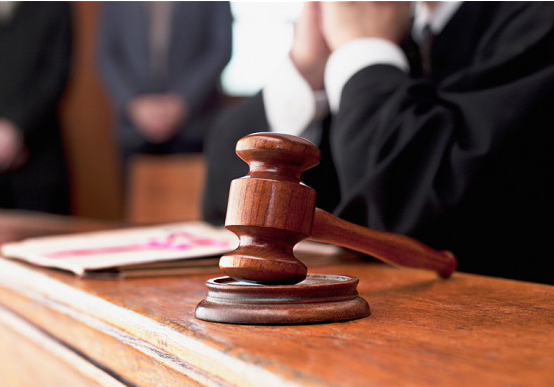
Jun 28, 2018 | News
The ICJ is deeply concerned with the allegations that the former Chief Justice and other officials infringed the freedom of expression and freedom of association of individual judges in South Korea.
The ICJ urges the Republic of Korea to ensure the individual independence of judges in the country.
The ICJ received information that in 2015, the National Court Administration (NCA), under the term of former Chief Justice Yang Sung-tae, submitted proposals to the government of South Korea to create a ‘second Supreme Court,’ arguing that it would assist in relieving the existing Supreme Court with its caseload.
This proposal was met with numerous criticisms from the general public and several individual judges.
Allegedly, judges who criticized this proposal were placed by the NCA under surveillance, both in their professional and personal dealings.
Moreover, they were prevented from joining international conferences and national professional organizations. Some were also either sidelined for promotions or were not given preference for educational opportunities abroad.
On March 2017, during the term of former Chief Justice Yang, the Supreme Court, through the NCA, created an internal committee to conduct an investigation to look into these allegations.
Two other subsequent separate committees were formed to investigate.
Finally, on Mary 2018, under the term of the current Chief Justice Kim Myeong-soo, the latest committee, without releasing a full report, said that it did not find basis to file criminal charges against the NCA and former Chief Justice Yang.
On 18 June 2018, the Seoul Central District Prosecutor’s Office initiated its own investigation into the allegations, including the possibility of filing criminal charges against former Chief Justice Yang and some NCA judges.
The rights of freedom of expression and association of judges is recognized in the UN Basic Principles on the Independence of the Judiciary and other relevant standards, which also provide for appropriate and fair procedures for holding judges to account for misconduct.
In principle, in matters touching on alleged misconduct by a judge related to the discharge of his or her duties, the ICJ considers that international standards and best practices concerning judicial independence and accountability would require at the minimum that a prosecutor seek permission of a judicial council or current Chief Justice, or other similar superior judicial authority, before commencing a formal criminal investigation or proceedings against a sitting judge.
The ICJ calls on the prosecutors’ office to seek such permission and to take steps to demonstrate that it will remain impartial and independent in the conduct of its own investigation.
The ICJ also calls on the Supreme Court to initiate a new investigation of its own, including to consider the issues from a judicial professional conduct perspective.
Finally, the ICJ urges the Supreme Court to ensure that interferences into the individual independence of judges in South Korea would never happen again.
Contact
Emerlynne Gil, ICJ Senior International Legal Adviser, t: +662 619 8477 (ext. 206) ; e: emerlynne.gil@icj.org
South Korea-Independence of Judges-News-Web Story-2018-ENG (full story in PDF)
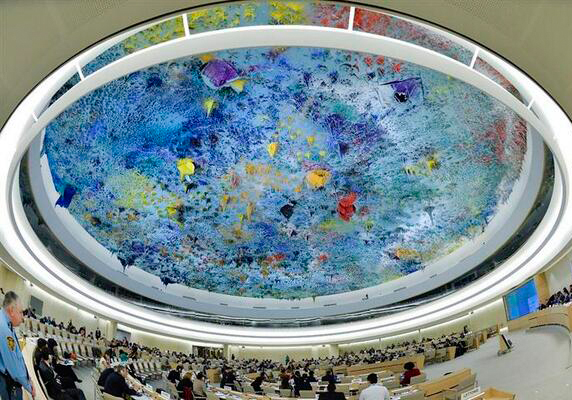
Jun 25, 2018 | Advocacy, Non-legal submissions
The statement on behalf of four groups was delivered in the context of the General Debate on Item 3 during the 38th Session of the UN Human Rights Council.
The groups called all States to take up the opportunity to strengthen a multilateral approach the issue of business and human rights by joining the intergovernmental process to establish a legally binding instrument in this field.
The statement is as follows:
The current intergovernmental process to establish a legally binding instrument in the field of business and human rights offers States the opportunity to work through international cooperation and multilateral engagement to effectively address the human rights impact of business activities.
We thus urge all States –including those that have been so far reluctant to engage- to actively participate in this process.
Only constructive dialogue among all States and other stakeholders, especially the affected communities, can lead to sustainable solutions to the existing normative and protection gaps.
This 38th session of the Human Rights Council marks the 10th anniversary of its adoption of the Framework Report “Protect, Respect and Remedy”.
As we celebrate the contribution of this Framework, which led to the creation of the Guiding Principles on Business and Human Rights, we must emphasize the need to increase the international community’s response.
In the past ten years, although important work has been done in some areas and by some countries, little systemic positive change has been felt on the ground, where many individuals, especially indigenous and peasant workers and communities, continue to endure the violation of their rights without recourse to real remedy avenues.
The creation of an international legally binding framework for States to maximize action and cooperation regarding rights abuses in the context of business operations remains a compelling necessity of our times.
I thank you.
Full statement in English (PDF): Universal-HRC38-BHR-treaty-Advocacy-non-legal-submission-June-2018-ENG









